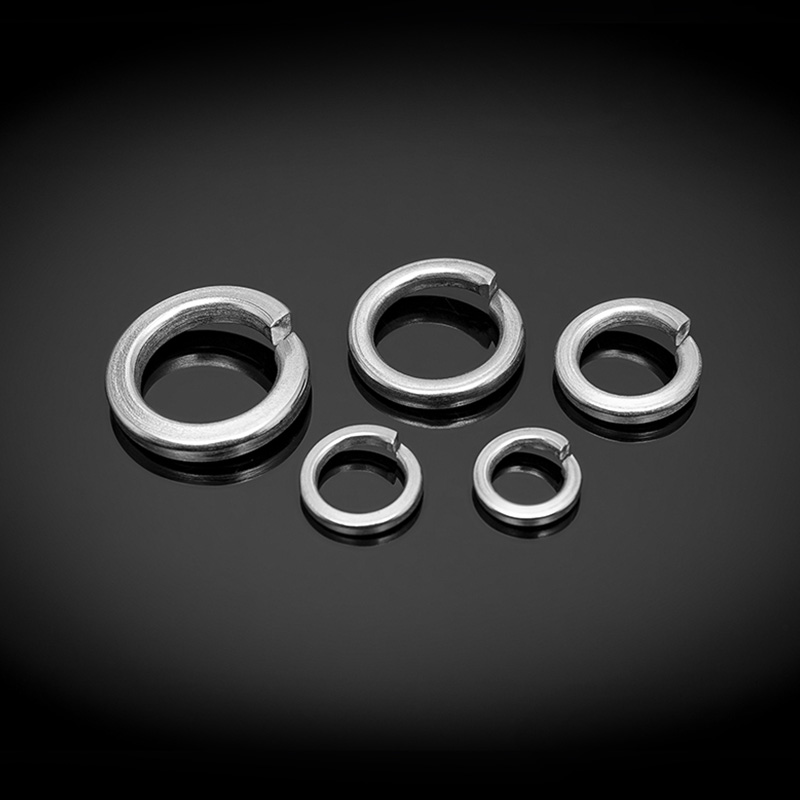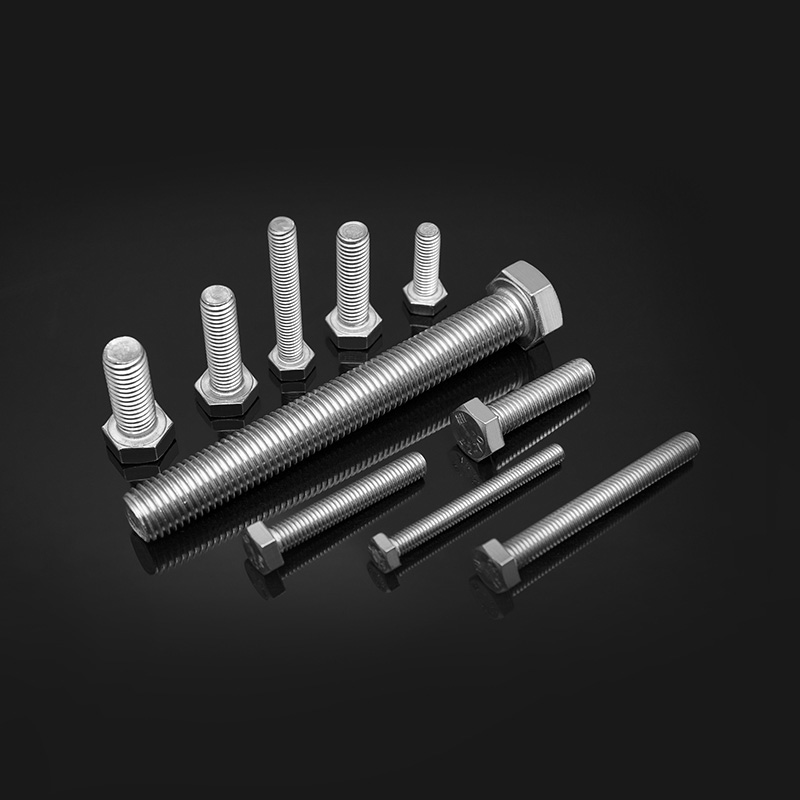+86 189 6101 2359
+86 133 6521 5663
+86 138 5268 6835
Washers are seemingly simple components, but they play a crucial role in fastening systems across industries. By distributing loads, reducing wear, and improving the effectiveness of bolts and nuts, washers contribute directly to joint stability and reliability. Among the different materials used for washers, stainless steel, carbon steel, and alloy steel are the most common. A key property that differentiates them is hardness, which affects resistance to deformation, ability to withstand repeated stresses, and long-term durability. Understanding how stainless steel washers compare to carbon steel and alloy steel washers in terms of hardness helps engineers and users select the most appropriate type for their application.
Content
Stainless steel washers are often produced from grades like 304 or 316, both belonging to the austenitic family of stainless steels. These grades are favored because of their excellent corrosion resistance, ductility, and toughness, making them ideal for environments exposed to moisture, chemicals, or fluctuating temperatures.
In terms of hardness, annealed 304 stainless steel typically registers around 70–90 HRB (Rockwell B). Cold-working processes, such as rolling or stamping, can increase hardness moderately, but stainless steel washers remain softer than hardened carbon steel washers. This moderate hardness means that while stainless steel washers resist cracking and offer flexibility, they may deform under heavy clamping forces or in high-stress mechanical joints.
The advantage of stainless steel washers lies not in extreme hardness but in their ability to resist corrosion and maintain structural integrity in aggressive environments. For example, in marine engineering, food processing facilities, and chemical plants, stainless steel washers outperform harder materials that are prone to rust and surface degradation.

Carbon steel washers present a very different profile. Carbon steel can be heat-treated through processes such as quenching and tempering, which significantly increase its hardness and tensile strength. Hardened carbon steel washers often achieve 38–45 HRC (Rockwell C), placing them well above stainless steel washers in terms of hardness and wear resistance.
This high hardness translates to superior resistance to deformation and surface indentation when subjected to high clamping forces. As a result, carbon steel washers are widely used in heavy machinery, structural assemblies, automotive manufacturing, and other settings where the mechanical load is substantial.
However, carbon steel lacks the corrosion resistance of stainless steel. Without protective coatings such as zinc plating, galvanization, or phosphate treatment, carbon steel washers are susceptible to rust when exposed to moisture or corrosive agents. Thus, their high hardness must often be balanced with surface treatments to extend service life in outdoor or humid conditions.
Alloy steels build upon carbon steel by introducing elements such as chromium, molybdenum, or vanadium. These additions allow alloy steels to achieve even higher hardness values and tensile strengths when subjected to proper heat treatment. Alloy steel washers are specifically engineered for high-performance, high-stress applications.
For instance, washers used in aerospace, power generation, or advanced automotive components may be manufactured from alloy steels because they can withstand not only heavy mechanical loads but also elevated temperatures. Their hardness makes them more resistant to wear, creep, and fatigue compared to both stainless steel and standard carbon steel washers. The drawback, however, is similar to carbon steel: alloy steel washers are not inherently corrosion resistant and usually require coatings or plating for protection.
To compare materials objectively, hardness is measured using standard testing methods. The Rockwell hardness test is one of the most common, with Rockwell B (HRB) scales used for softer metals like stainless steel and Rockwell C (HRC) scales for harder, heat-treated steels. Other methods such as Brinell hardness testing or Vickers hardness testing may also be applied depending on the precision required.
These measurements help determine not only how resistant the washer will be to deformation but also how it will behave under repeated loading conditions. For instance, a washer with too low a hardness may flatten or deform, leading to bolt loosening, while one that is too hard may become brittle and crack under impact.
The choice between stainless steel, carbon steel, and alloy steel washers often comes down to the specific conditions of the application:
Stainless steel washers: Used in environments where corrosion resistance, hygiene, and long service life matter more than maximum hardness. Common in marine hardware, outdoor construction, food equipment, and medical devices.
Carbon steel washers: Selected for their superior hardness and strength, making them ideal for heavy mechanical loads, structural fastening, and industrial machinery. Typically coated for corrosion protection.
Alloy steel washers: Reserved for specialized environments requiring exceptional hardness, wear resistance, and durability, such as aerospace, automotive racing, and power plants.
In comparing hardness, stainless steel washers are generally softer than carbon steel or alloy steel washers. Carbon steel provides higher hardness and strength, while alloy steel offers peak performance for extreme conditions. Stainless steel, though softer, delivers unmatched corrosion resistance and toughness, which often outweigh hardness considerations in challenging environments.
Ultimately, choosing the right washer material depends on the balance between hardness and environmental resistance. In a corrosive marine setting, stainless steel may be the only viable choice, while in heavy structural assembly, hardened carbon steel may be preferred. Alloy steel serves as a specialized option for the most demanding mechanical and thermal conditions.

ThreadTolerance: 6gstandardDIN 13-15、DIN 13-12Rod diameter dd≤M20:A2-70、A4-70;M20<d≤M39:A2-50、A4-50;d≥M39:C3、C4;d<M39
See DetailsCopyright © Jiangsu Huajie Stainless Steel Products Co., Ltd. All Rights Reserved.
Stainless Steel Fasteners Manufacturers